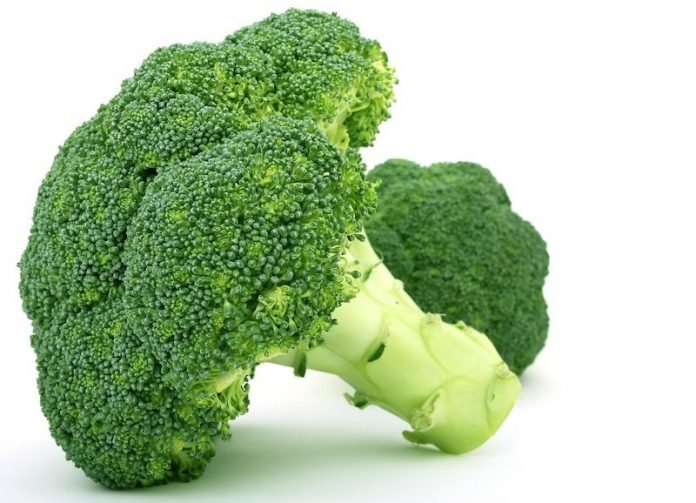
A new study from Johns Hopkins found that a chemical derived from a compound found abundantly in broccoli and other cruciferous plants may fight against COVID-19 and the common cold.
They showed that sulforaphane, a plant-derived chemical, known as a phytochemical, already found to have anti-cancer effects, can inhibit the replication of SARS-CoV-2, the coronavirus that causes COVID-19, and another human coronavirus.
The study is published in Communications Biology and was conducted by Lori Jones-Brando et al.
Sulforaphane’s natural precursor is particularly abundant in broccoli, cabbage, kale and Brussels sprouts.
First identified as a “chemopreventive” compound decades ago, natural sulforaphane is derived from common food sources, such as broccoli seeds, sprouts and mature plants, as well as infusions of sprouts or seeds for drinking.
Previous studies have shown sulforaphane to have cancer and infection-prevention properties.
In the study, the research team first exposed cells to sulforaphane for one to two hours before infecting the cells with SARS-CoV-2 and the common cold coronavirus, HCoV-OC43.
They found that low concentrations of sulforaphane reduced the replication by 50% of six strains of SARS-CoV-2, including the delta and omicron variants, as well as that of the HCoV-OC43 coronavirus.
The team also observed similar results with cells that had been previously infected with the viruses, in which the protective effects of sulforaphane were seen even with an already established virus infection.
The group also examined the effects of sulforaphane when combined with remdesivir, an antiviral medication used to shorten the recovery of hospitalized adults with COVID-19 infections.
In their findings, remdesivir inhibited 50% of the replication of HCoV-OC43 and SARS-CoV-2.
Further, the research team reports that sulforaphane and remdesivir interacted synergistically at several combination ratios to reduce by 50% the viral burden in cells infected with HCoV-OC43 or SARS-CoV-2.
The fact that sulforaphane and remdesivir work better combined than alone is very encouraging.
The researchers then found that giving 30 milligrams of sulforaphane per kilogram of body weight to mice strongly decreased the loss of body weight that’s typically linked to virus infection (7.5% decrease).
Further, the pretreatment resulted in a big decrease in both the viral load, or amount of virus, in the lungs (17% decrease) and upper respiratory tract (9% decrease) as well as the amount of lung injury (29% decrease) compared with infected mice that were not given sulforaphane.
The compound also decreased inflammation in the lungs, protecting the cells from a hyperactive immune response that seems to be one of the driving factors that has caused many people to die from COVID-19.
The team says that sulforaphane is antiviral against HCoV-OC43 and SARS-CoV-2 coronaviruses while also helping control the immune response.
This multifunctional activity makes it an interesting compound to use against these viral infections, as well as those caused by other human coronaviruses.
Recent studies have found vaccines may not prevent severe COVID-19 in these people, and this old drug can save your life from COVID-19, which are highly relevant to the current study.
Sign up for our newsletter for more information about this topic.
Previous research has shown the benefit of a plant-based diet for COVID-19 prevention.
In a paper from Rutgers New Jersey and published in the American Journal of Medicine, researchers suggest that in addition to vaccinations, plant-based diets can help people improve their health and decrease vulnerability to COVID-19.
A 2021 study of health care workers in six countries revealed that those following largely plant-based diets had 73% lower odds of developing moderate-to-severe COVID-19, compared with those following other diets.
This benefit may come from the fact that plant-based diets are linked to much lower body weight, lower risk of high blood pressure, lower plasma lipid levels, and lower risk of diabetes.
A healthy vegan diet can benefit a large group of individuals who fail to respond adequately to vaccination yet does not have a classic immunosuppression condition.
As of November 18, 2020, more than 60% of COVID-19 hospitalizations were attributable to obesity, hypertension, diabetes, or heart failure.
To improve health and decrease vulnerability to COVID-19 and other illnesses, the authors suggest three key strategies:
Doctors should encourage patients to improve underlying health conditions, including adopting healthful dietary habits, particularly a renewed emphasis on vegetables, fruits, whole grains, and legumes, and plant-based diets.
Medical practitioners should refer appropriate patients to registered dietitians as a matter of medical urgency.
They should provide nutrition information and code nutrition messaging into their electronic medical records to be automatically given to patients at check out.
Hospitals should provide information about good nutrition to patients, families, visitors, and staff, and should model it with the foods they serve.
If you care about COVID, please read studies that people with these mental problems less likely to get COVID-19, and this drug can offer much-needed COVID-19 protection.
For more information about COVID, please see recent studies about the familiar drug that could help treat COVID-19, and results showing scientists find new antibody treatment for COVID-19.
Copyright © 2022 Knowridge Science Report. All rights reserved.



